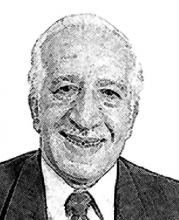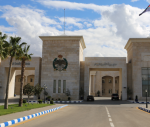You are here
Reflecting self-confidence
Sep 27,2014 - Last updated at Sep 27,2014
In a move that projects total self-confidence, the authorities refused to rearrest Omar Mahmoud Othman (Abu Qatada) following his exoneration of all terrorist charges regarding his alleged role in the Millennium plot in 2000, according to which tens of Westerners were to be killed in a Jordanian hotel.
Abu Qatada, Jordanian, is considered one of the top five ideologues of Jihadi Salafist groups in the Arab world. His book “Jihad, Bein Manhajein” is the bible for thousands of Algerian and Tunisian jihadists.
Having him walk the streets of Zarqa and Amman last week sends a clear message about the cohesiveness of the Jordanian society and the stability of the country.
It is true that we have nearly 10,000 Jihadi Salafists in many refugee camps, tribal villages and cities, but the connotation of such a message is that there is no existential danger from them, or from the 2,000 others fighting in Syria and Iraq.
The nature of the Jordanian fabric, as well as the special relationship between the people and the regime, reflects itself in the security situation and the political stability that Jordanians are envied for in the entire region.
Jordanian authorities know that Abu Qatada’s name is still on the terrorists list of wanted persons, issued by the United Nations Security Council Resolution 1267/99 which calls on all member states to capture and arrest all citizens involved with Al Qaeda, yet he was allowed to walk free out of the military court where his trial had been convened.
This chapter of Abu Qatada’s story, who had the military rank of captain in the Public Security Department, working as a religious mufti till he settled in the United Kingdom, recruiting Moroccan and Libyans as his Jihadi Salafist followers, reflects the uniqueness of the Jordanian political way of accommodation and co-optation.
Few analysts were surprised when a religious fatwa was issued by Abu Qatada, weeks ago, describing the Islamic State of Baghdadi as being no more than “ a bubble of air”, stating that a caliph should be elected by other Muslims, otherwise, his decisions are non-Islamic, non-binding, null and void.
Thousands of Jihadi Salafists in North Africa and the Arab world picked the many Twitter messages sent by Abu Qatada, condemning the brutal slaying of two American journalists, deportation of Mosul Christians and enslavement of Yazidi women, doubting Baghdadi’s real adherence to Sharia.
This chapter of his story illustrates vividly how our country succeeded, by using ideological persuasion, to maintain its security, to maximise its stability, and to fortify the cohesiveness of the multi-faceted strata of its citizens.













